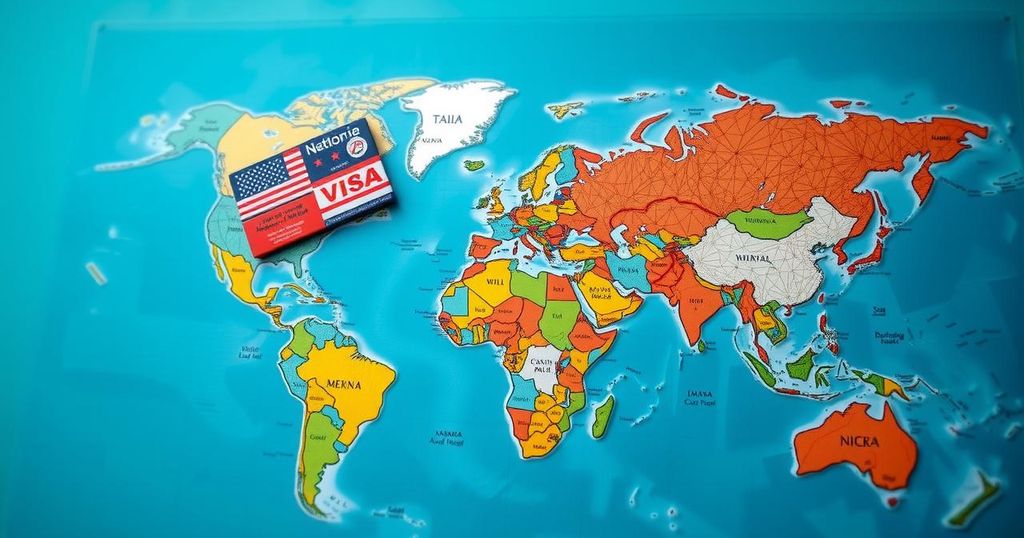Surge in Interest for Digital Nomad Visas After Recent U.S. Election
Post-election, Americans are increasingly exploring digital nomad visas and international relocation. Interest surged in searches for moving guides to countries like Canada, spurred by the election outcome. With over fifty nations offering digital nomad visas, remote working is becoming a favored lifestyle choice for many, especially in Europe with options in Spain and Portugal.
Following the recent U.S. presidential election, there has been a notable surge in Americans’ interest in digital nomad visas and the prospect of relocating abroad. This trend coincided with a spike in Google searches for phrases such as “best countries to move to” and “how to move to Canada,” particularly after the election results favored Donald J. Trump for a second term. The pandemic had already catalyzed a boom in digital nomadism, allowing individuals to work seamlessly from various international locations without the confines of traditional office spaces. While a return to office mandates was instituted by many employers, a significant number still maintain flexible remote work policies, facilitating prolonged travel for employees. Thus, the movement towards freelance work in lower-cost areas has gained traction. For those contemplating a relocation, it is essential to understand the availability of digital nomad visas. These permits enable individuals to reside and work legally in foreign nations for extended periods, ranging from several months to five years. Over fifty countries offer such visas, including esteemed destinations like New Zealand, Japan, Kenya, and Thailand. The criteria and associated fees vary across nations. Within Europe, Spain, Portugal, the Netherlands, and Norway are particularly favored by digital nomads. Spain, for instance, welcomes remote workers, stipulating an income threshold of approximately $2,450 per month. The application fee stands at $80 with a one-year visa that may be renewed. Contrarily, Portugal sets a higher minimum income requirement of $3,500, allowing renewal for up to four years post-initial approval.
In recent times, the concept of digital nomadism has gained immense popularity, especially stimulated by the COVID-19 pandemic, which led to the widespread adoption of remote work arrangements. This newfound flexibility empowered countless individuals to seek more affordable living conditions in different countries, where they could continue their professions without geographic limitations. With the return to traditional employment structures looming, many remote workers are exploring legal pathways to maintain their lifestyle of traveling while working, hence the increased interest in digital nomad visas.
In conclusion, the electoral shift in the United States has triggered a renewed interest in digital nomadism, with many contemplating the advantages of relocating abroad. Numerous countries now offer digital nomad visas, granting remote workers the opportunity to live and work internationally for extended periods. As this trend evolves, it is vital for individuals to research the various visa requirements and conditions to facilitate their potential relocation.
Original Source: www.nytimes.com




Post Comment